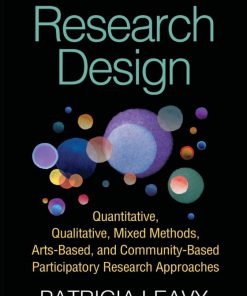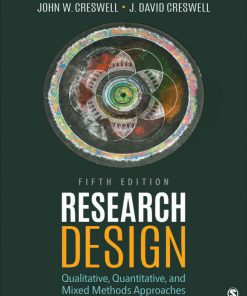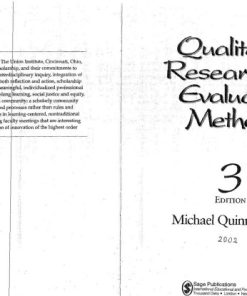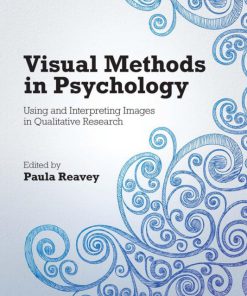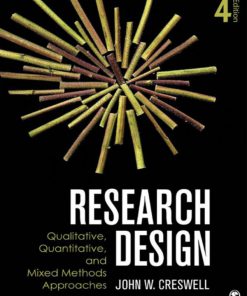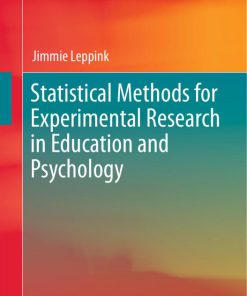Research and Evaluation in Education and Psychology Integrating Diversity With Quantitative Qualitative and Mixed Methods 3rd Edition by Donna Mertens ISBN 141297190X 9781412971904
$50.00 Original price was: $50.00.$25.00Current price is: $25.00.
Authors:Donna M. Mertens , Series:Education [50] , Tags:Education; Research; Psychology; Research & Methodology , Author sort:Mertens, Donna M. , Ids:9781412971904 , Languages:Languages:eng , Published:Published:Sep 2010 , Publisher:SAGE , Comments:Comments:“The emphasis on minority populations has caught my attention and sustained my loyalty. Donna is so sensitive in exploring those issues, a first in a text for that class and a welcome addition.”—Nick Eastmond, Utah State UniversityFocused on discussing what is considered to be “good” research, this text explains quantitative, qualitative, and mixed methods in detail, incorporating the viewpoints of various research paradigms into the descriptions of these methods. Approximately 60% of the content in this Third Edition is new, with lots of fresh examples. Key FeaturesPostpositivist, constructivist, transformative, and pragmatic paradigms discussed Conducting research in culturally complex communities emphasized throughout A step-by-step overview of the entire research process providedNew to this Edition New coverage on how to write a literature review and plan a dissertationNew pedagogy including “Extending Your Thinking” throughout This is a core or supplemental text for research courses in departments of education, psychology, sociology, social work and other human-services disciplines.
Research and Evaluation in Education and Psychology: Integrating Diversity With Quantitative, Qualitative, and Mixed Methods 3rd Edition by Donna Mertens – Ebook PDF Instant Download/Delivery. 141297190X, 978-1412971904
Full download Research and Evaluation in Education and Psychology: Integrating Diversity With Quantitative, Qualitative, and Mixed Methods 3rd Edition after payment

Product details:
ISBN 10: 141297190X
ISBN 13: 978-1412971904
Author: Donna Mertens
“The emphasis on minority populations has caught my attention and sustained my loyalty. Donna is so sensitive in exploring those issues, a first in a text for that class and a welcome addition.”
―Nick Eastmond, Utah State University
Focused on discussing what is considered to be “good” research, this text explains quantitative, qualitative, and mixed methods in detail, incorporating the viewpoints of various research paradigms into the descriptions of these methods. Approximately 60% of the content in this Third Edition is new, with lots of fresh examples.
Key Features
- Postpositivist, constructivist, transformative, and pragmatic paradigms discussed
- Conducting research in culturally complex communities emphasized throughout
- A step-by-step overview of the entire research process provided
New to this Edition
- New coverage on how to write a literature review and plan a dissertation
- New pedagogy including “Extending Your Thinking” throughout
This is a core or supplemental text for research courses in departments of education, psychology, sociology, social work and other human-services disciplines.
Research and Evaluation in Education and Psychology: Integrating Diversity With Quantitative, Qualitative, and Mixed Methods 3rd Table of contents:
Chapter 1: An Introduction to Research and Ethical Practice
- Why Bother?
- What is Research?
- Research Terminology
- Approach Taken in This Book
- Major Paradigms in Research: A Brief History of Research
- Postpositivism
- Constructivist Paradigm
- Transformative Paradigm
- Pragmatic Paradigm
- Politics, Legislation, and the Paradigms
- Contested Territory: Quality, Causality, and Objectivity
- Merging Paradigms—Across Differences
Chapter 2: Evaluation
- Defining Evaluation
- Distinguishing Research and Evaluation
- History and Models of Evaluation
- Resources and Processes for Conducting Evaluations
- Steps in Planning an Evaluation
- Standards for Critically Evaluating Evaluations
- Ethics and Evaluation: The Guiding Principles
- Questions for Critically Analyzing Evaluation
- Evaluation Resources for Program and Policy Evaluations
Chapter 3: Literature Review and Focusing the Research
- Reasons for Doing Literature Reviews
- The Search Process
- Critical Analysis of Literature Reviews
- Questions for Critically Analyzing Literature Reviews
Chapter 4: Experimental and Quasi-Experimental Research
- Importance of Experimental Design
- Research Designs and Threats to Validity
- Experimental, Quasi-Experimental, and Single-Group Designs
- Other Design Issues
- Challenges to Using Experimental Designs in Educational and Psychological Research
- Transformative Perspectives Regarding Experimental Research
- Postpositivist Rejoinder
- Final Thoughts
- Questions for Critically Analyzing Experimental, Quasi-Experimental, and Single-Group Designs
- Where to From Here?
Chapter 5: Causal Comparative and Correlational Approaches
- Inherent Characteristics: Challenging Issues
- Causal Comparative Research
- Correlational Research
- Questions for Critically Analyzing Causal Comparative and Correlational Research
Chapter 6: Survey Methods
- Design Phase
- Sampling Plan
- Designing the Survey Instrument
- Pilot Testing the Questionnaire
- Language Differences between the Researcher and the Respondent
- Special Types of Questions
- Letter of Transmittal
- Conducting the Survey
- Data Analysis and Troubleshooting Your Survey Instrument
- Questions for Critically Analyzing Survey Research
Chapter 7: Single-Case Research
- Quality Issues in Single-Case Research
- Design Options
- Data Analysis in Single-Case Research
- Questions for Critically Analyzing Single-Case Research
Chapter 8: Qualitative Research and Action Research
- Basis for Selection of Qualitative Methods
- Types of Qualitative Research
- Data Collection
- General Methodological Guidelines
- Translation Issues in Multilingual Contexts
- Qualitative Data Collection Methods
- Critically Analyzing Qualitative Research
- Questions for Critically Analyzing Qualitative Research
Chapter 9: History, Narrative Study of Lives, and Autoethnography
- Why Study History?
- Importance of Historical, Narrative, and Autoethnographic Research
- Types of Historical, Narrative, and Autoethnographic Research
- Steps in Conducting Historical-Narrative Research
- Notes on Biographical Research
- Notes on Autoethnographic, Autobiographical/Self-Study Research
- Questions for Critically Analyzing Historical-Narrative Research
Chapter 10: Mixed Methods Research
- Definition and Characteristics
- Importance in Educational and Psychological Research
- Philosophical Assumptions and Mixed Methods Research
- Mixed Methods Design Options
- Questions for Critically Analyzing Mixed Methods Research
Chapter 11: Sampling
- Definition, Selection, and Ethics
- External Validity (Generalizability) or Transferability
- Defining the Population and Sample
- Identification of Sample Members
- Sampling Strategies
- Sampling Bias
- Access Issues
- Sample Size
- Ethics and Protection of Study Participants
- Questions for Critically Analyzing Sampling Strategies
Chapter 12: Data Collection
- Operationalizing Concepts
- Quantitative Measurement Topics
- Selection and Development of Quantitative Instruments
- Developing a Data Collection Instrument
- Qualitative Data Collection Methods
- Mixed Methods and Data Collection
- Standards for Judging Quality of Data Collection
- Questions for Critically Analyzing Data Collection
Chapter 13: Data Analysis, Interpretation, and Use
- Quantitative Analysis Strategies
- Qualitative Analytic Strategies
- Analytic and Interpretive Issues in Mixed Methods
- A Research Plan: The Management Plan and Budget
- Writing Research Reports
- Utilization of the Research Results
People also search for Research and Evaluation in Education and Psychology: Integrating Diversity With Quantitative, Qualitative, and Mixed Methods 3rd:
research and evaluation in education and psychology pdf
what is evaluation research in education
educational research and evaluation
difference between research and evaluation pdf
evaluation research psychology





